So, after the Facebook’s newsfeed filtering algorithm that caused organic reach to drop for brands, Facebook is up and flexing its muscles yet again. The change is a small one this time though. If you haven’t heard about it yet, it is this: [Tweet “No hiding content and contests behind “Like Gates” anymore is Facebook’s newest verdict!”]
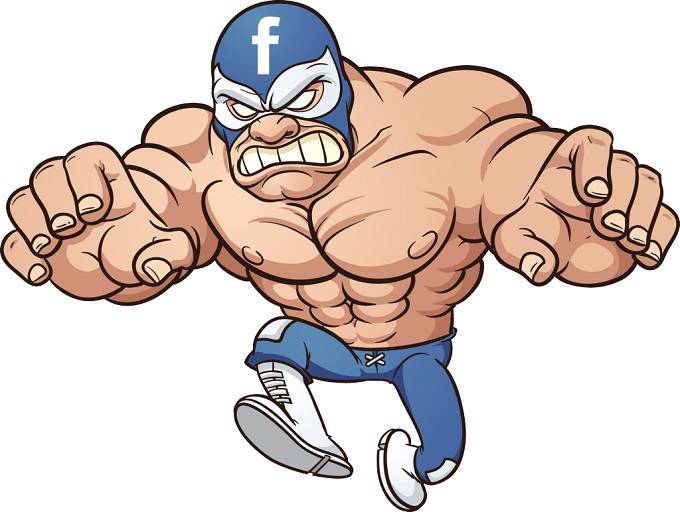
What does this mean?
This means that fan-gating as a mechanism to collect more page-likes is dead. So, as of 5th November, 2014, all the active Facebook like gates would be disabled; you already cannot create new fan-gates any more (since the announcement – 7th August).
Why does it matter for marketers?
Everyone running social media campaigns has at some point used Facebook like gates to increase their number of likes in exchange for some content, or a chance to win something. This is what you would not be able to do anymore. This is how a fan-gate typically looked:
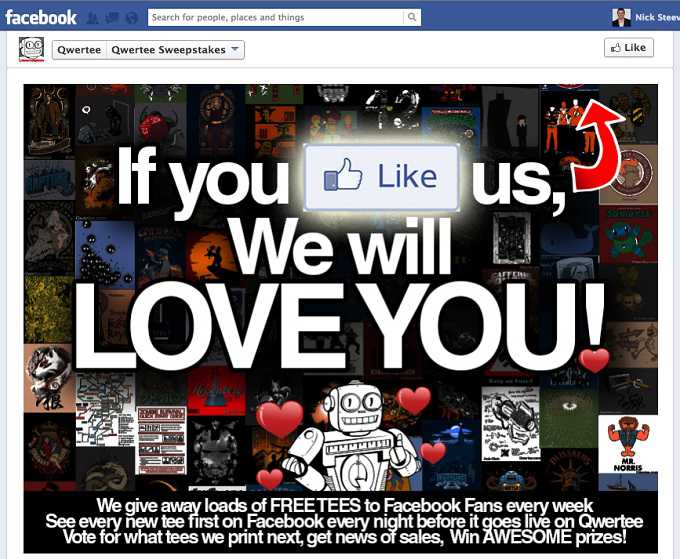
So, the fan view and non-fan view of the contest page were different. Non-fans had to “Like” the page to pass through the gate.
Do you see the problem there?
1. No quality filter for likes
To enter the contest, people liked a page, who might actually be irrelevant likes for the business if they were not really interested in the actual product/service. So, you are accumulating likes, without any quality filter. Of course, you would get relevant likes, but junk likes would make a high percentage as well. Consider these stats:
42% of Fans like a Page in order to get a coupon or discount
35% Like a Page in order to participate in contests (according to ShortStack’s research report from late last year)
That means quite a few “pseudo” likers would follow you, enter the contest, and never interact with your content again, or worse, unlike you after the contest. Yup, that’s right, wham bam thank you ma’am! Sucks, but that’s what it is.
2. Facebook’s ad targeting suffers because of false signals
Given the fact that Facebook’s advertising (therefore, revenue) depends on things like “Interest Targeting”, the like-gating business was bound to get shut down somewhere down the line.
Consider this: a user liked your page to get freebies, but is essentially not interested in your product. Now, some other advertiser ‘B’ wants to target users based on keywords similar to your business. So, the user that liked your page only for the purpose of getting the freebies would also see advertiser B’s ad. This disrupts good user experience, and wastes advertisers’ money as well. So, basically, these false signals are eating up your own advertising money.
3. Compromise with good user experience
After liking your page, the user might see your organic posts also (very slim chance though, because of the algorithm update), which once again disrupts good user experience, as they don’t really want to see posts from you.
True, marketers have been using Facebook Like Gates in highly relevant ways as well, for instance, a musician gating new videos behind a fan gate. In this case, the user would like the page only if he/she is interested in the band, or at least in that genre of music.
But, even though this like-gathering technique is gone, this really is not such a big deal!
Do you remember the hue and cry that ensued after Facebook eliminated custom landing pages early in 2013, when timelines were launched?
That..was kind of a big deal.
Why? Because, brands could custom land first-time visitors on whatever kind of tab they wanted. These likers were more or less relevant, as they searched for you and landed on this page. If you don’t remember what I am talking about (which is highly unlikely if you have been marketing for more than a year on Facebook), check out this RedBull landing page that was quite a popular example of a good landing page, because of the use of awesome directional cues.
So, if marketers got over that, they can definitely get over this as well.
This time marketers seem far less distraught; in fact, most of the reactions that I have seen are of indifference, which is a very good thing.
But, there still are people who are outraged – to them I would say, stop swearing by likes (especially the ones that might not even be relevant to you.) I have discussed a couple of tips at the bottom of the post, if you still want your contest entrants to like your page.
Why Facebook’s Move Makes Sense?
There has been a huge outcry about the organic drop of Facebook posts since late last year. The reactions that time also ranged from marketers choosing to invest more in ads, to this brilliant break-up letter written to Facebook, before Eat24 closed its Facebook account in protest.
While I understand the brands’ agony, because they did spend countless hours building an organic following, which has suffered due to the changes, but as I have said before, it was inevitable.
The point was and still is the same – mellowing down the noise.
Consider this:
1. There are more than 50 million pages on Facebook, which includes more than 25 million small business pages.
2. An average Facebook user has 350 friends, and more than 40 pages that they like (this stat is from 2013).

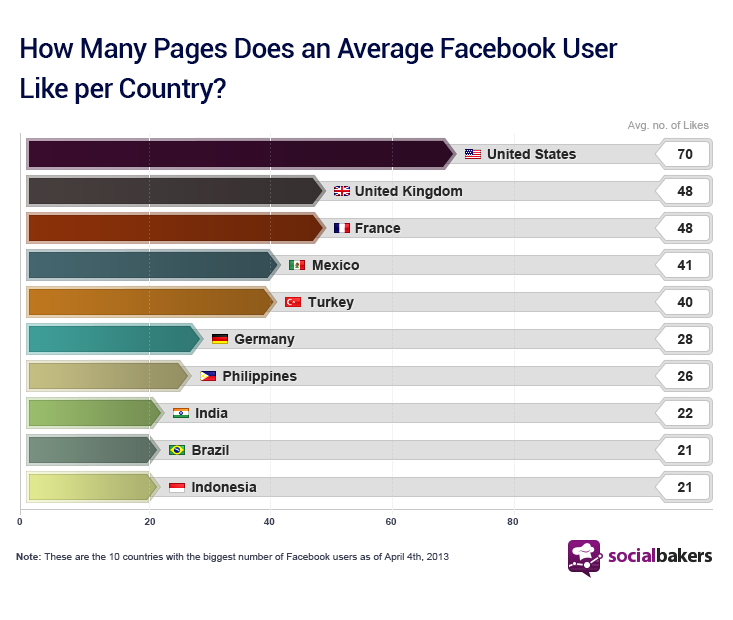
It would suffice to say that the Facebook population (of both pages and people) has hit a point where there just isn’t enough surface area for every brand to survive organically (not on all their likers’ timelines anyway). On an average, when a user logs in to Facebook, they would see 1500 posts; this gets narrowed down by Facebook’s algorithm depending on the kind of content the user likes to interact with.
The big challenge for Facebook
The challenge before Facebook is to ensure that everything that the user sees is something that they want to see. This would ensure that they stick around on Facebook.
Therefore, instead of a chronological order of all the posts by the user’s friends and liked pages (that would be crazy), Facebook picks and displays notifications similar to the ones the user has interacted with in the past. This, in addition to the paid posts (ads), which once again should be relevant based on the person’s likes, dislikes, past interactions and friends’ recommendations.
This is quite a challenge; therefore, Facebook takes feedback from users to find what exactly is it that they want to see on their newsfeed.
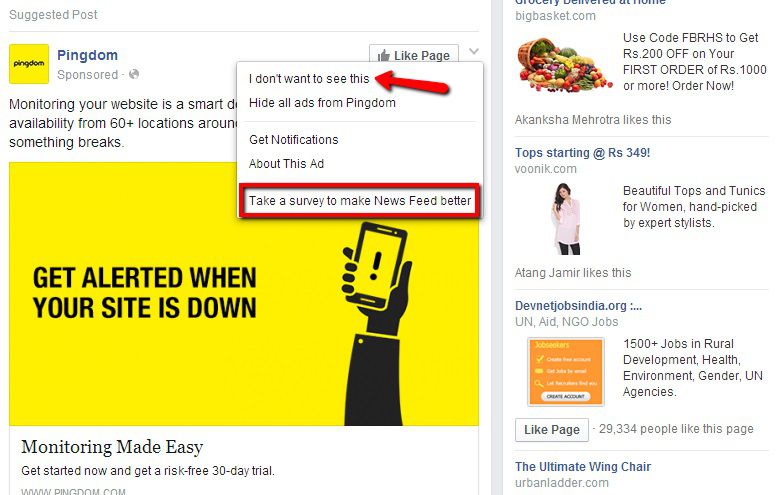
Now, to this challenge, add the fact that Facebook’s algorithm has already been affected quite a bit in the past by the use of Facebook like gates, where people are asked to enter a contest to say “Win a Book” in exchange for a like. Consider these stats yet again:
42% of Fans like a Page in order to get a coupon or discount
35% Like a Page in order to participate in contests (according to ShortStack’s research report from late last year)
Of these 35%, there would be many people who wouldn’t have liked the page at all, if there was no Facebook like gate.
This means that whether or not a person likes what you are selling, they would follow you to have a chance to win the book that they want. This skews the algorithm that assumes that the user likes the page for real. This messes up the entire Facebook experience for the user, which is what Facebook is trying to avoid.
What this move doesn’t mean?
The contests are gone: No, you can still run contests on Facebook using 3rd party apps. You just can’t ask people to like your page to enter them.
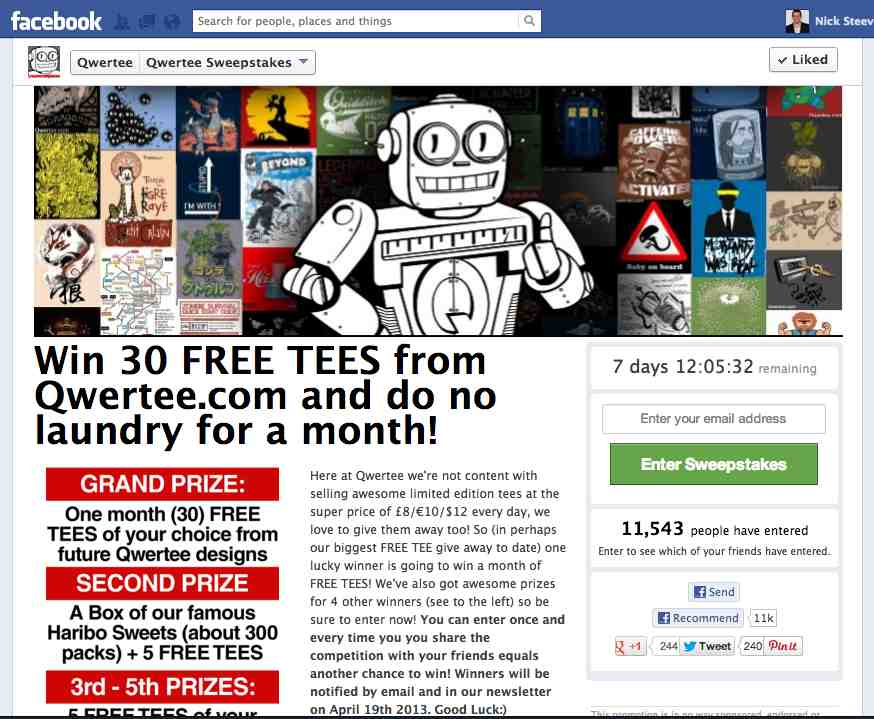 Why this isn’t a complete tragedy?
Why this isn’t a complete tragedy?
I know that Facebook like gates can be very useful, especially in cases where the gated content is also very relevant to your brand, so that only the people who want access to that kind of content would see it. But, it’s not a perfect world, and many advertisers have unknowingly used this brilliant mechanism to get relevant likes to just gather random ones while running contests.
So, Facebook isn’t really “completely” the bad guy; it’s just trying to clean up the mess.
Advantage: You won’t be deceived by inaccurate numbers
People that like your page just to access something not relevant to your brand, would generally never interact with your brand otherwise. And, you do not want your stats skewed by this.
Just accept the fact that this way of gathering likes is gone, but also be happy that you will have much less “junk” likes on your page.
People still stuck on the “number of likes” as opposed to the relevance of these likes may want to change their strategy.
What can you do instead?
1. Collect leads: Use form tabs to just collect the email IDs of the people entering the contest. By this, you are already getting something so much more valuable than a like.
2. Run a custom audience campaign to get likes: If, getting these people’s likes is so-so important to you, you can even run a custom-audience campaign to get these people to like your page, now that you have their email IDs. Again, this would cost you money.
3. Don’t force, just ask: Don’t gate the content; instead, if you are running a quiz, just ask people to “Like your page for updates”. So, Liking is not really a condition here; it’s an option. That is okay.
4. Use Contests for other awesome things, like getting social proof: You can still run contests for numerous other things. Many businesses do it to get user-generated content as well, as that is generally quite popular with fans. For instance, have a form that has an additional field, like a text field, and in exchange for entering your contest, they can share “Why do they like your product” or “How has their experience been in using the product.” This would get responses from real fans, and you would get social proof (credibility element) to use elsewhere as well.
And, lastly, don’t really bother about these likes, as they were a by-product of whatever else you were trying to do anyway (capture leads, get fan interaction).
So, there it is. Were you using Facebook Like Gates as well? What’s gonna be your next move?








